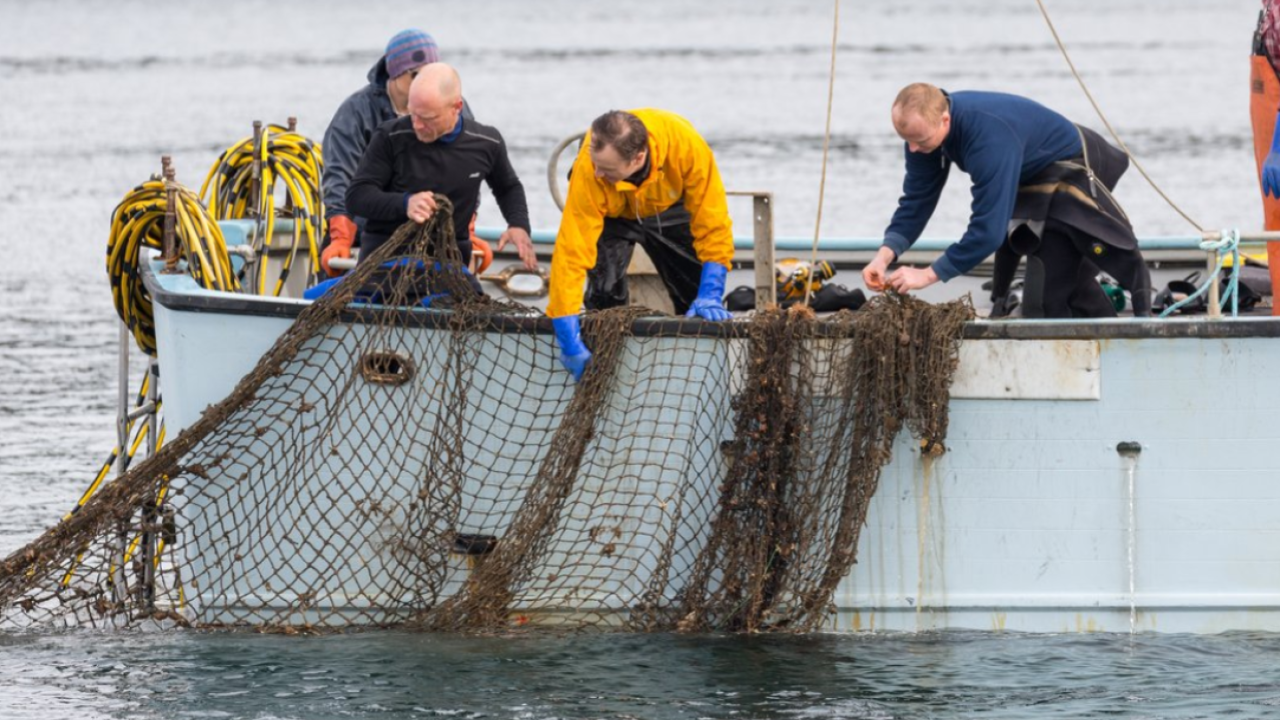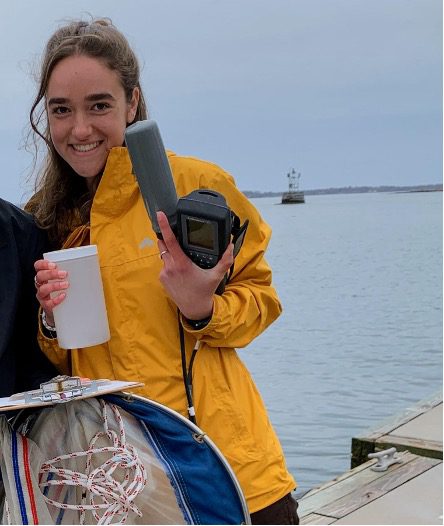Written by Wilson Haims
One of the most harmful forms of marine debris is abandoned, lost, and discarded fishing gear—also known as ghost gear.
Planeterra’s Ocean Health Fund is proud to support Ocean Conservancy’s Global Ghost Gear Initiative® (GGGI), a leading alliance dedicated to solving this issue through practical, replicable, and sustainable solutions.

Here are some of the GGGI’s key impacts from the past year:
- Removing Ghost Gear from Sensitive Marine Areas.
- Cross-Border Collaboration. The North American Net Collection Initiative , led by GGGI, collects old fishing nets in Mexico, the U.S., and Canada. So far, over 566,000 pounds of nets have been collected and mostly recycled into new products.
- Raising awareness among fishers and the public. GGGI provides hands-on training for fishers and runs public education campaigns. Media appearances like “Oceans Haunted By Ghost Gear” and “Ghost Gear is polluting the Chesapeake Bay and oceans around the world” have helped spread awareness to wider audiences.
- Advocating for a strong global plastics treaty.
Supporting the Next Generation: The Joanna Toole Internship
Another important part of this effort is the Joanna Toole Internship, which supports early-career women pursuing ocean conservation. Hosted by Ocean Conservancy and the Center for Coastal Studies (CCS), the internship is generously funded by Planeterra.
To date, three interns have completed the program—including Wilson Haims, the 2024 Joanna Toole Intern. Her experience highlights the depth and impact of this unique opportunity:
Meet Wilson Haims: 2024 Joanna Toole Intern
My name is Wilson Haims and I am the 2024 Joanna Toole Intern. I am from Maine and graduated from Wellesley College with a degree in Environmental Studies in 2023.
As part of my undergraduate degree, I participated in an ocean and coastal studies program directed by Williams College called Williams-Mystic. There, I honed my interest in marine issues and gained more experience on the water. By the time I graduated, I had plans to work as a marine educator at the Center for Alaskan Coastal Studies.
In Alaska, I grew immensely as a naturalist, educator, and as a person. I worked from the Homer Harbor and regularly interacted with the commercial, sport, and subsistence fishermen. As the summer progressed, I had the opportunity to go salmon fishing and I became increasingly compelled by human relationships to the ocean and our reliance on its resources; fishing merges the concepts of tradition, culture, subsistence, science, connection to nature, and technique in a way that is challenging to find in other professions or recreational activities.

Over the past three months, I had the opportunity to work with the Marine Debris and Plastics Program at the Center for Coastal Studies in Provincetown, Massachusetts. During my time in Provincetown I collaborated with local fishermen to recover lost and abandoned fishing gear from Cape Cod Bay, assisted in leading a week-long fishing gear removal effort from the beaches on Cuttyhunk Island, and helped coordinate a residency for students from Cornell University to engage with ghost gear and marine debris related issues.
Beyond these larger projects, I also participated on research cruises with the Right Whale Research team, the Marine Animal Entanglement Response team and had the chance to observe a side-scan sonar cruise. I look forward to translating my experience in ghost gear related field work to the Global Ghost Gear Initiative.
When I discovered the Joanna Toole Internship, I was struck by how unique the opportunity is: I had the chance to recover ghost gear from Cape Cod Bay, working directly in collaboration with fishermen, and now get to zoom out and consider these issues on a global scale.
Beyond this position’s comprehensive approach, I am fascinated by how collaborative this work can be and who it speaks to. At the Center for Coastal Studies I worked with artists, scientists, environmentalists, fishermen, volunteers, and a fishing net recycler. In my interactions with these individuals, I quickly learned that many of them claim more than just one of these titles.
It is my hope and intention to bring what I have learned from these diverse perspectives and incorporate their insight into how I approach this work. I look forward to exploring where the second half of this internship takes me.


Post a comment